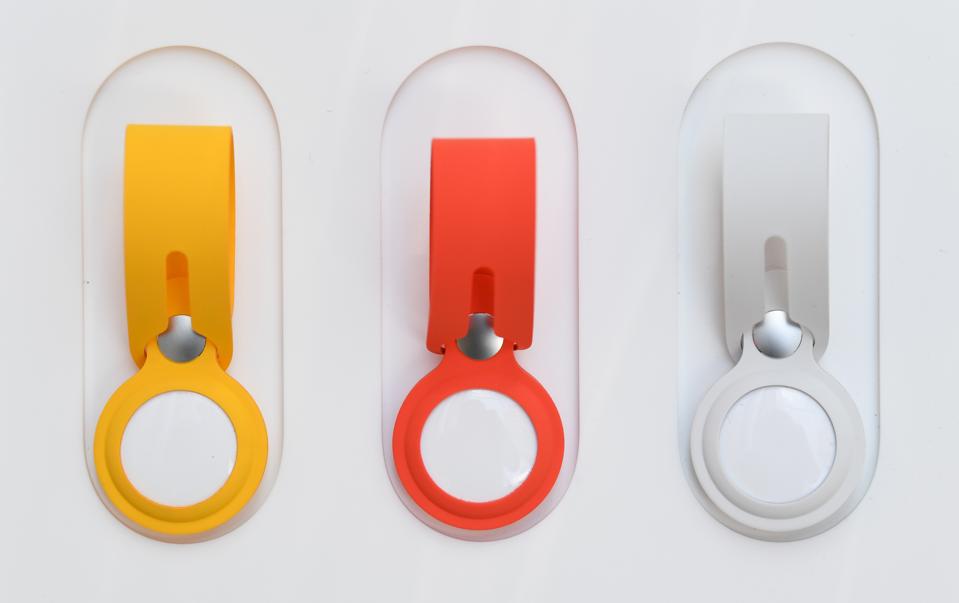Apple’s AirTags are getting new anti-tracking protection, coming in iOS 17.5. The new AirTags features have been a long time coming, with concerns growing after reports Apple’s tiny devices were used to stalk and track people.
So, what are the issues with AirTags, what new features have been introduced by Apple to deal with this, and how can you protect yourself from being tracked?
The Problem With Apple’s AirTags
AirTags are a cool device, allowing you to track items such as keys or even your dog, so you don’t lose them. AirTags use Apple’s Find My Network, which allow you to track the devices via your iPhone and know where they are located.
But the tracking abilities of Apple’s AirTags also mean they can be used for unwanted stalking and tracking of people. For instance, an AirTag can be slipped into someone’s handbag or vehicle.
Last year, over three dozen people joined a class-action lawsuit after claiming they’d been terrorized by stalkers using AirTags. The complaint alleged that AirTags were “one of the most dangerous and frightening technologies employed by stalkers.”
AirTags are useful to anyone who wants to track someone due to their low cost and availability. Surveillance devices such as listening bugs and trackers have long been kept underground and are often expensive, says Jake Moore, global cybersecurity advisor at ESET. “When Apple released the AirTag, it offered tracking capabilities to all users with ease and for little expense.”
The other issue with AirTags is, they were not designed with privacy and security in mind. “AirTags are small and work off a massive network of other users, but they were designed without a thought for privacy or physical security,” says Moore. And when devices are manufactured without solid protection built in from the outset, remote updates can often struggle to bring them up to speed, he says.
Apple did introduce anti-stalking technology that would allow users to detect when unknown AirTags are tracking them, using an iPhone alert system. Yet another major problem with AirTags is a lack of integration with non-iOS operating systems such as Google Android, which means non-Apple trackers can go unnoticed by iPhones.
This is something being dealt with via a recent Apple and Google partnership.
New iOS 17.5 AirTag Anti-Tracking Feature
The new iOS 17.5 AirTag anti-tracking feature is a direct result of the partnership between Apple and Google, first announced last year. The proposed industry specification wants to ensure Bluetooth location-tracking devices are compatible with unauthorized tracking detection and alerts across iOS and Android platforms.
In fact, it goes much further than that, allowing iPhone users to detect tracking devices from other vendors too—including Samsung and Tile, according to the press release. The anti-tracking capability works both ways—Android users should be able to better detect whether AirTags are tracking them via a closer partnership between the two smartphone giants.
“When tracking devices are so simple to get hold of, the protections in place need to work in silo with each other and with just as much ease as it was to set up,” Moore says.
The new iOS 17.5 feature will alert iPhone users to any unknown Google tracking devices as well as AirTags. A String added to the Find My app reads: “This item isn’t certified on the Apple Find My network. You can disable this item and stop it from sharing its location with the owner. To do this, follow the instructions provided on a website by the manufacturer of this item.”
AirTag anti-tracking protection is an ongoing issue that must be constantly monitored. “Until newer devices are designed with better safety measures built into the design phase, future updates will need to be continually rolled out in order to keep all users safe,” says Moore.
It’s clear Apple and Google will need to keep up with new methods of attack using AirTags, as criminals often find new ways to get around these protections. However, the new partnership and resulting anti-tracking features in iOS 17.5 are certainly a good start.

